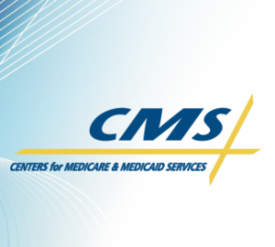Accountable Care Organizations Cut Costs by $411 Million

- The medical industry has been focused on improving coordinated care across the spectrum of healthcare delivery. With ongoing healthcare reforms taking place around the country and the federal government taking a stronger role in improving patient care objectives across the board, the creation of collaborative Accountable Care Organizations (ACOs) brings forth new opportunities for providers, payers, and the patient community.

Several weeks ago, the Centers for Medicare & Medicaid Services (CMS) released its findings on the financial and quality of care prospects among Medicare Accountable Care Organizations. It was found that ACOs continue to garner financial savings all the while improving patient care among Medicare beneficiaries, according to a press release from CMS.
The number of Accountable Care Organizations seem to be growing across the board, which will further stimulate more monetary savings for the healthcare industry. The results show that 20 ACOs in the Pioneer ACO Model and 333 Medicare Shared Shavings Program ACOs brought in a total of $411 million in savings last year.
Based on the third performance year, Pioneer ACOs garnered 24 percent more savings than during 2013. On average, each ACO saved $6 million individually in the third performance year, which rose from $2.7 million in the first year of the program.
Accountable Care Organizations have an overall goal of reducing medical errors and unnecessary test duplications by better coordinating care between a variety of specialists and healthcare providers. With the help of ACOs, patients with chronic medical conditions receive the right care at the right time.
The results from CMS offer a clearer picture of how ACOs have brought forward better care for Medicare beneficiaries and ensured an overall cost savings for the healthcare industry as a whole.
HealthITAnalytics.com recently spoke with Emily Brower, Vice President of Population Health at Atrius Health, to learn more about the implications Pioneer ACOs have for strengthening coordinated care.
“There are some unusual features of the Pioneer ACO model, which are built into the way that performance is measured,” Brower began. “The Medicare fee schedule differs based on your geographical region. The difference between the prices in that region and the national average can help or hurt an ACO regardless of how it’s changing care. That does lead to some disappointing results for some participants.”
“There is also a threshold of savings that an ACO has to achieve before it shares in savings, and there are different options you can choose,” she continued. “An organization that's very risk-averse might choose a higher threshold because that will protect them on the downside, and so they could generate savings but not return those savings to the ACO. Those are some of the issues that have shaped what we’ve seen this year and in past years.”
As Accountable Care Organizations continue to show favorable results, the number of Medicare beneficiaries served by ACOs should rise over the coming years, CMS predicts. Past results show that the number of patients served has risen each year and will likely continue to grow.
The Shared Savings Program tends to have more healthcare providers interested in participating in ACO development while those who’ve been part of the program are looking to sign up for subsequent years.
Ever since the Patient Protection and Affordable Care Act pushed forward the creation of Accountable Care Organizations, the patient community has garnered more opportunities for cost-effective, quality healthcare services.
